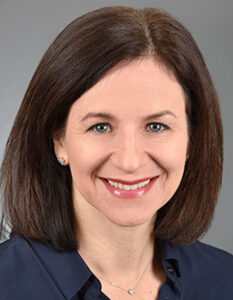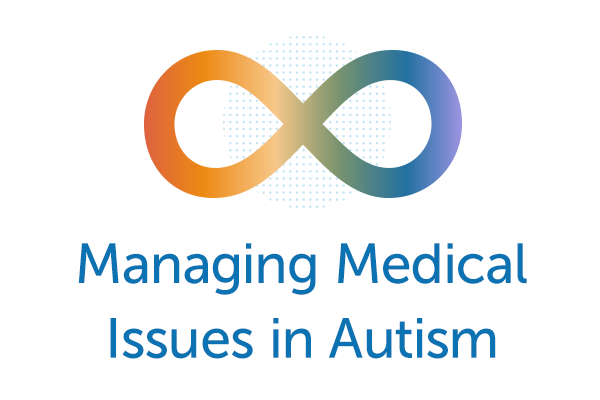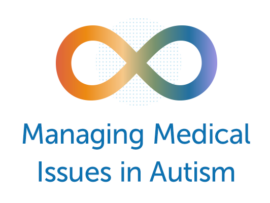Looking for Answers: The Microbiome in Autism (45 min.)
In this evidence-based presentation, Dr. Stacy Kahn discusses the role of the microbiome in human health and disease. Dr. Kahn explores the role of diet and other factors in the development of the microbiome, and problems caused by a compromised microbiome. Dr. Kahn also reviews the fundamentals of Fecal Microbiota Transplant (FMT) and recent studies that address the impact of FMT on autism. This stand-alone course* is one of a 5-part video lecture series: “Managing Medical Issues in Autism.” The other topics in the series cover Behavior and GI issues in Autism, Avoidant/Restrictive Food Intake Disorder, Treatment of Children with Autism and GI Problems, and Communication of Pain and Illness with Autism. The series was made possible thanks to the generous support of the American Institute for Neuro-Integrative Development (AIND). Click here for an introduction to the entire series.
* Each course of the series may be viewed independently for credit.
$50.00
Description
 Stacy A. Kahn, MD
Stacy A. Kahn, MDPediatric Gastroenterologist, Division of Gastroenterology Hepatology and Nutrition and Attending Physician with the Inflammatory Bowel Disease Center, Boston Children’s Hospital
Associate Professor of Pediatrics, Harvard Medical School
 Timothy Buie, MD
Timothy Buie, MDCo-Director of the GI-Autism Clinic and Senior Physician in the Pediatric Gastroenterology Department at Boston Children’s Hospital
In this evidence-based presentation, Dr. Stacy Kahn discusses the role of the microbiome in human health and disease. Dr. Kahn explores the role of diet and other factors in the development of the microbiome, and problems caused by a compromised microbiome. Dr. Kahn also reviews the fundamentals of Fecal Microbiota Transplant (FMT) and recent studies that address the impact of FMT on autism. This course is one of a five-part video lecture series: “Managing Medical Issues in Autism.” The other topics in the series cover Behavior and GI issues in Autism, Avoidant/Restrictive Food Intake Disorder, Treatment of Children with Autism and GI Problems, and Communication of Pain and Illness with Autism. The series was made possible thanks to the generous support of the American Institute for Neuro-Integrative Development (AIND). All five presentations from the series are available as stand-alone courses. Click here for an introduction to the entire series.
Learning Objectives:
At the conclusion of this educational program, learners will be able to:
- Discuss the multiple factors known to alter gut microbial communities.
- Detail healthiest suggestions about diet interventions to assist the microbiome.
- Explain the process of Fecal Microbiota Transplant (FMT) and the highly controlled methods for donor acceptance.
Accreditation
 In support of improving patient care, Boston Children’s Hospital is jointly accredited by the Accreditation Council for Continuing Medical Education (ACCME), the Accreditation Council for Pharmacy Education (ACPE), and the American Nurses Credentialing Center (ANCC), to provide continuing education for the healthcare team.
In support of improving patient care, Boston Children’s Hospital is jointly accredited by the Accreditation Council for Continuing Medical Education (ACCME), the Accreditation Council for Pharmacy Education (ACPE), and the American Nurses Credentialing Center (ANCC), to provide continuing education for the healthcare team.
Social Worker
As a Jointly Accredited Organization, Boston Children’s Hospital is approved to offer social work continuing education by the Association of Social Work Boards (ASWB) Approved Continuing Education (ACE) program. Organizations, not individual courses, are approved under this program. State and provincial regulatory boards have the final authority to determine whether an individual course may be accepted for continuing education credit. Boston Children’s Hospital maintains responsibility for this course. Social workers completing this course receive 0.75 ACE CE continuing education credits.
Psychologist
Continuing Education (CE) credits for psychologists are provided through the co-sponsorship of the American Psychological Association (APA) Office of Continuing Education in Psychology (CEP). The APA CEP Office maintains responsibly for the content of the programs. This course has been approved for 0.75 continuing education credits.
Physician
Boston Children’s Hospital designates this live activity for a maximum of 0.75 AMA PRA Category 1 Credits ™. Physicians should claim only credit commensurate with the extent of their participation in this activity.
Physician Assistant
Boston Children’s Hospital has been authorized by the American Academy of Physician Associates (AAPA) to award AAPA Category 1 CME credit for activities planned in accordance with AAPA CME Criteria. This activity is designated for 0.75 AAPA Category 1 CME credits. PAs should only claim credit commensurate with the extent of their participation.
Nurse
Boston Children’s Hospital designates this activity for 0.75 contact hours for nurses. Nurses should only claim credit commensurate with the extent of their participation in the activity.
Dietitian
** Refer to your Professional Development Portfolio Guide for LNCs or Pls. Completion of this RD/DTR profession-specific or IPCE activity awards CPEUs(One IPCE credit = One CPEU).
If the activity is dietetics-related but not targeted to RDs or DTRs, CPEUs may be claimed which are commensurate with participation in contact hours (One 60 minute hour = 1 CPEU).
RDs and DTRs are to select activity type 102 in their Activity Log. Sphere and Competency selection is at the learner’s discretion.
Physical Therapist
Boston Children’s Hospital is an approved provider designated by the APTA of MA. Boston Children’s approves Managing Medical Issues in Autism: Treating Children with Autism and GI Problems for 0.75 Continuing Education Hours.
Disclosure Policy
Boston Children’s Hospital adheres to all ACCME Essential Areas, Standards, and Policies. It is Boston Children’s policy that those who have influenced the content of a CE activity (e.g. planners, faculty, authors, reviewers and others) disclose all relevant financial relationships with commercial entities so that Boston Children’s may identify and resolve any conflicts of interest prior to the activity. These disclosures will be provided in the activity materials along with disclosure of any commercial support received for the activity. Additionally, faculty members have been instructed to disclose any limitations of data and unlabeled or investigational uses of products during their presentations.
Disclosure Statement
The following planners, speakers, and content reviewers, on behalf of themselves, have reported the following relevant financial relationships with any entity producing, marketing, reselling, or distributing health care goods or services consumed by, or used on patients:
Stacy Kahn, MD: None
Timothy Buie, MD: None
Additional information
| Credit Type | AAPA Category 1 (Physician Assistant), AMA PRA Category 1 Credits™ (MD, DO, NP, PA), APA CE (Psychologist), APTA CE Hours (Physical Therapist), ASWB ACE (Social Worker), CDR CPEU (Registered Dietitian), Contact Hours (Nurse, Nurse Practitioner) |
|---|---|
| Duration | |
| Format | |
| Topic | Autism, Behavioral Health, Gastroenterology/nutrition, Neurology, Psychology, Social Work |
| Expiration Date | |
| Release Date |


